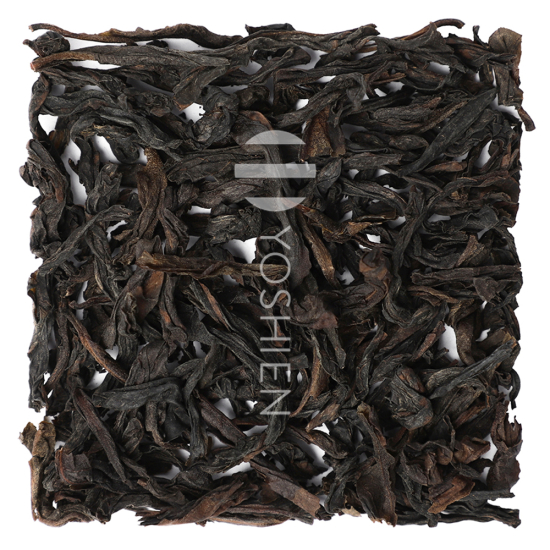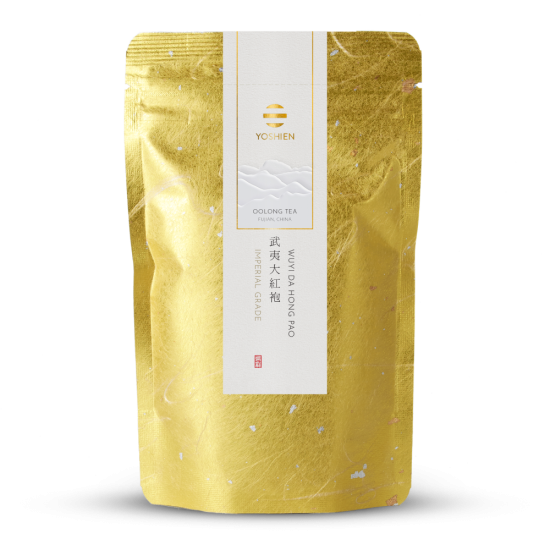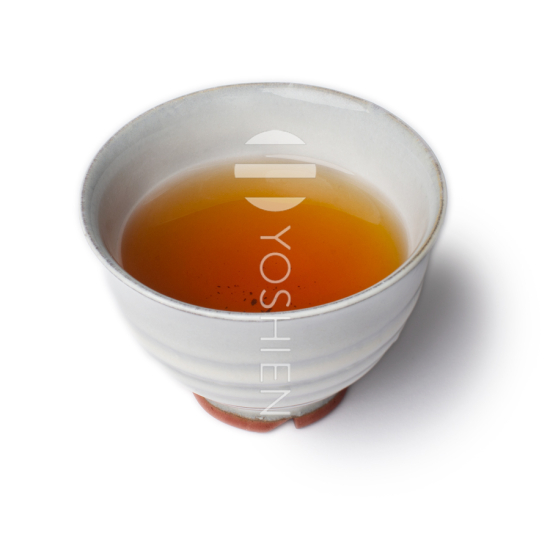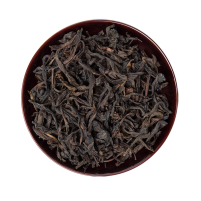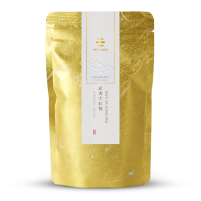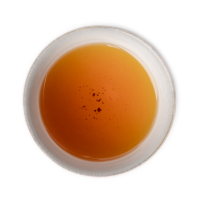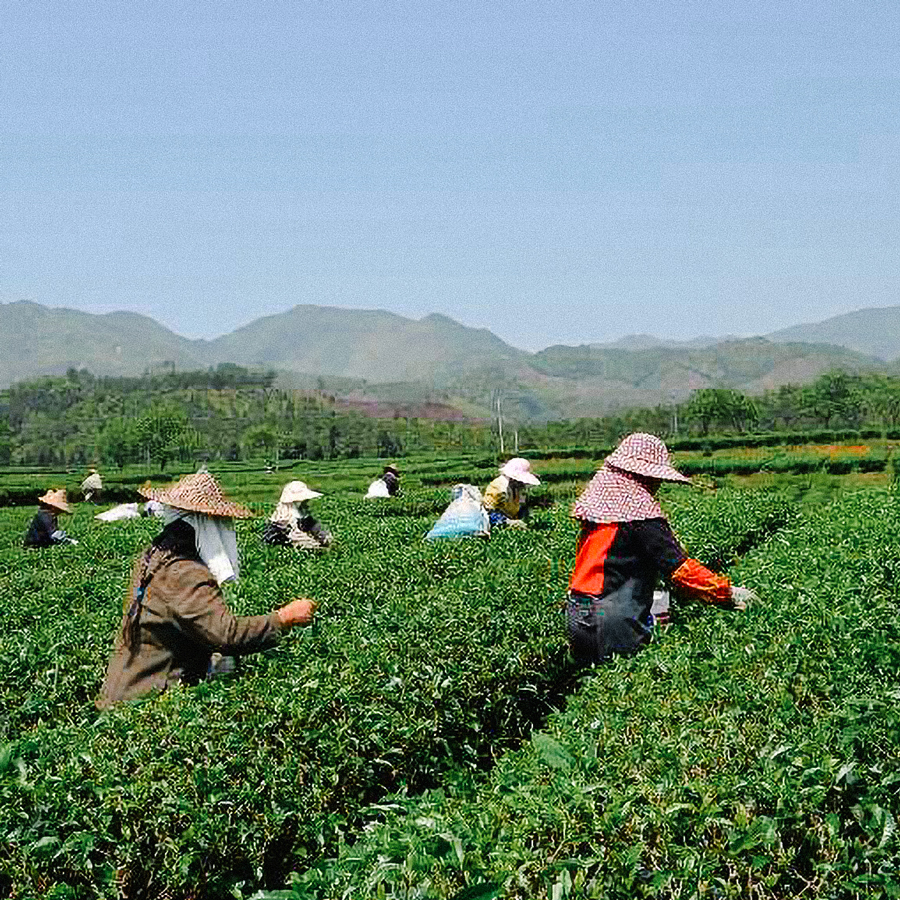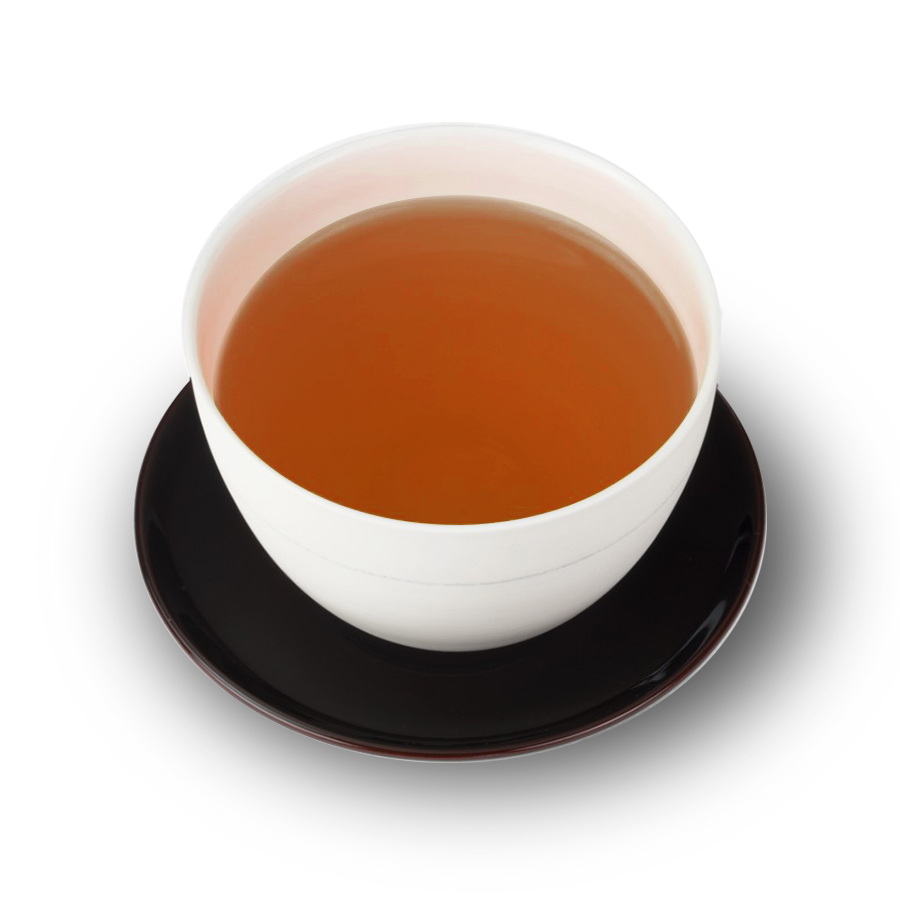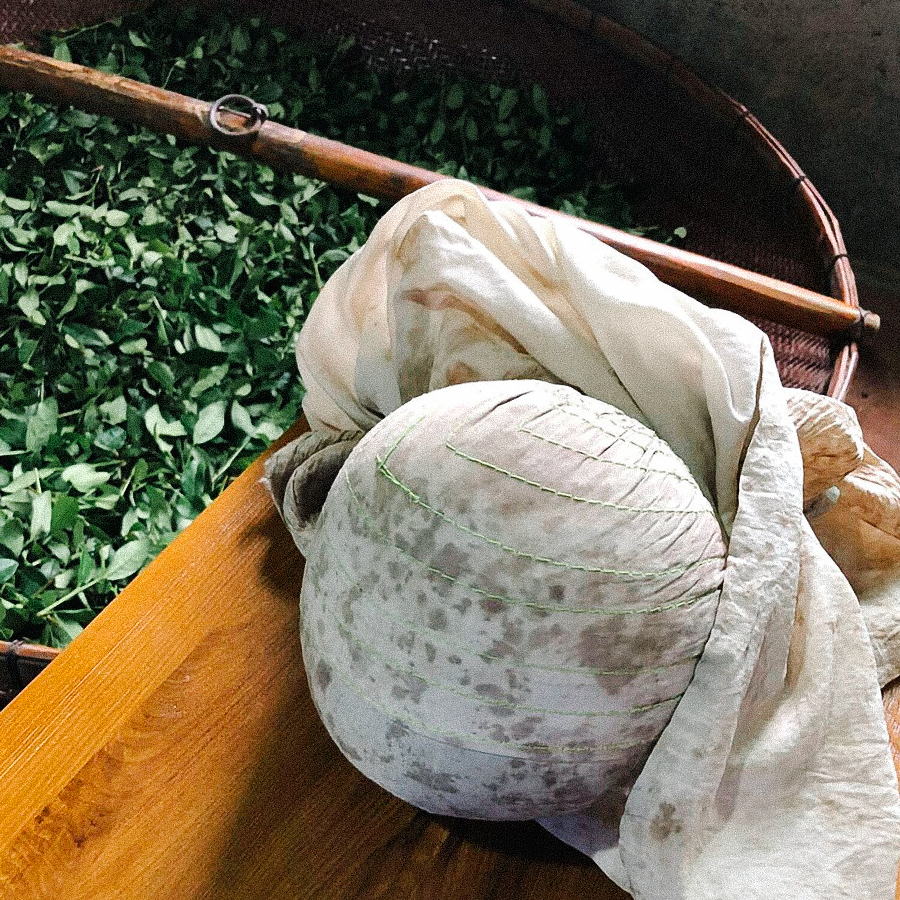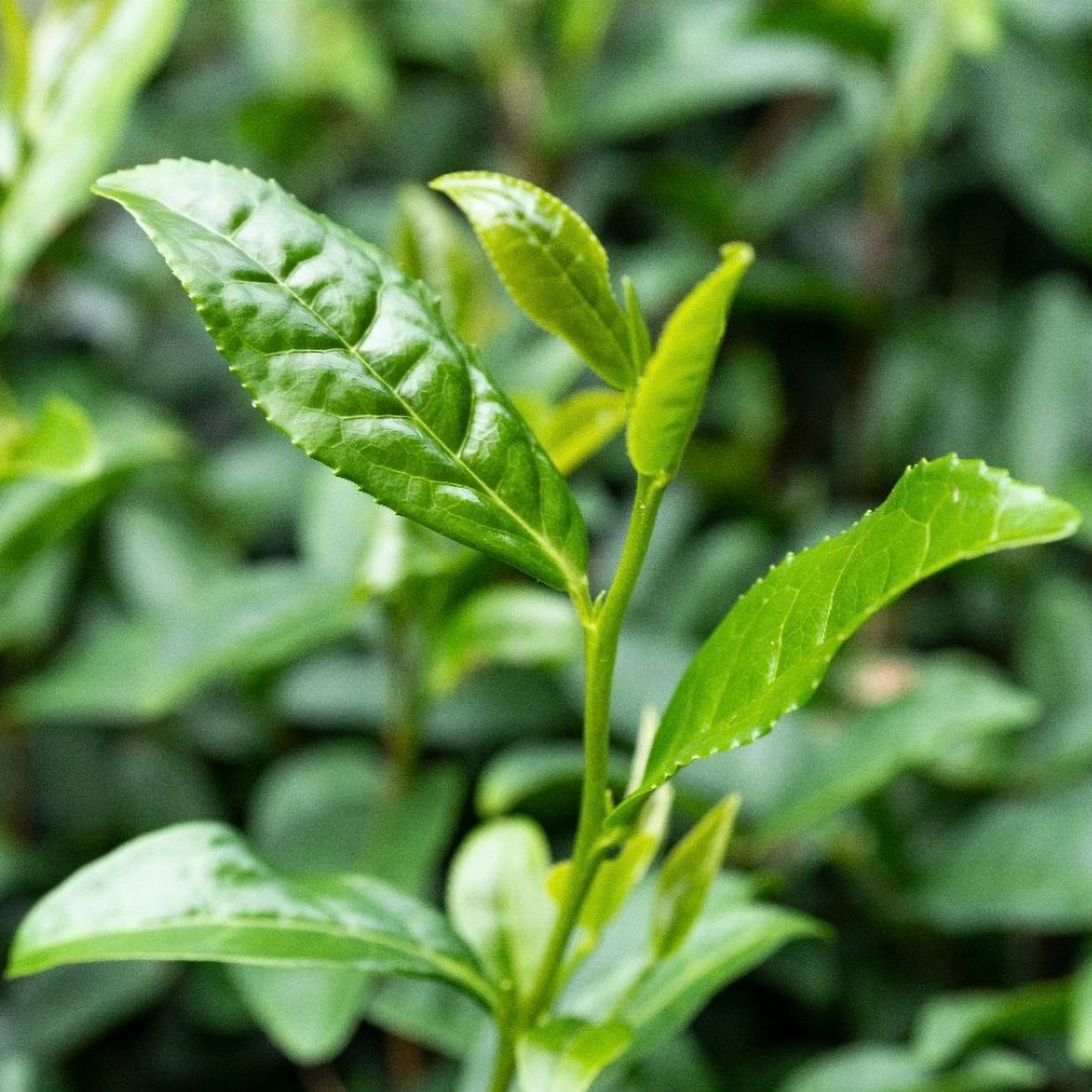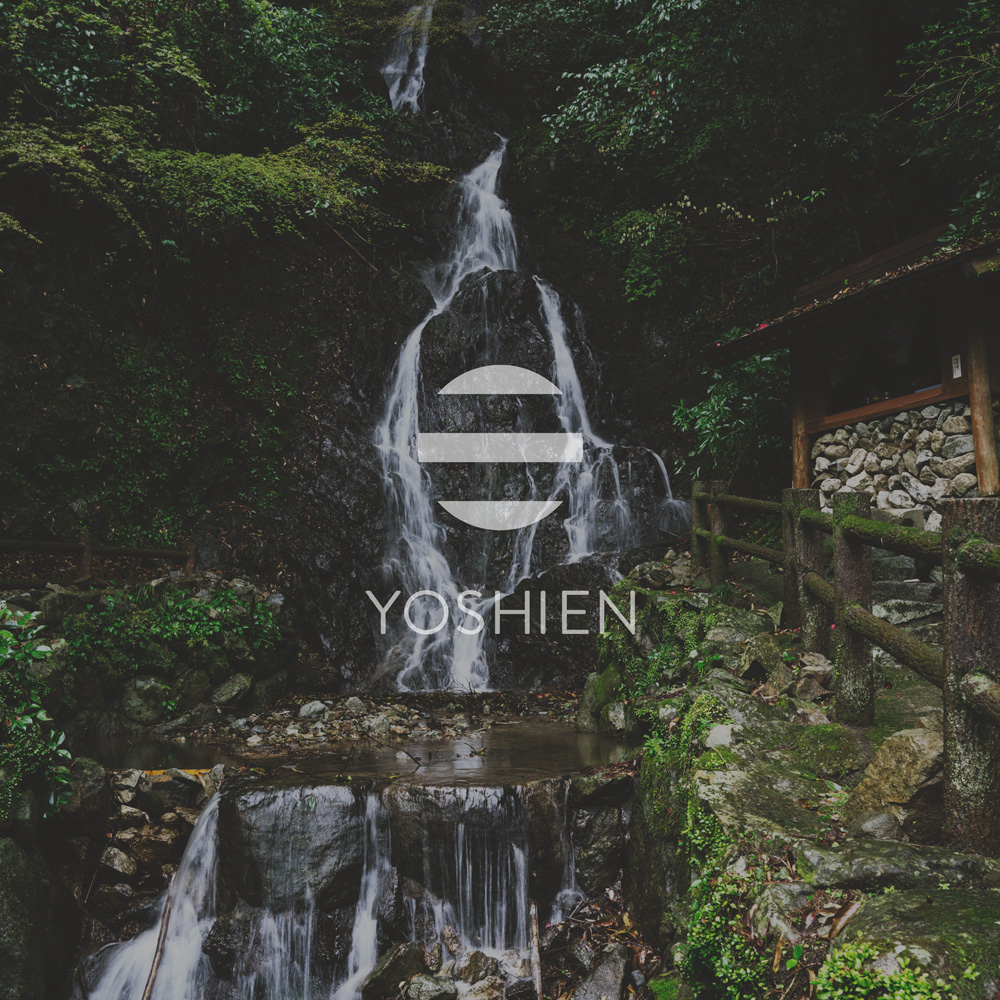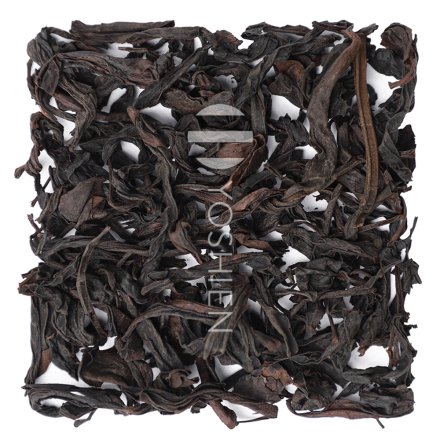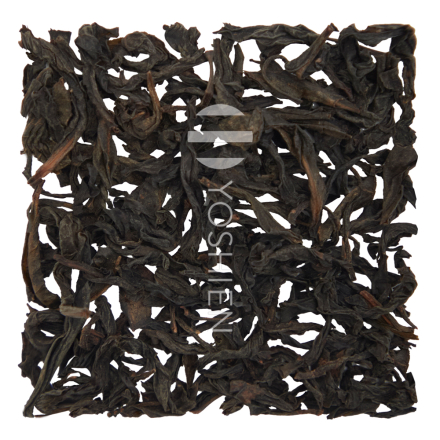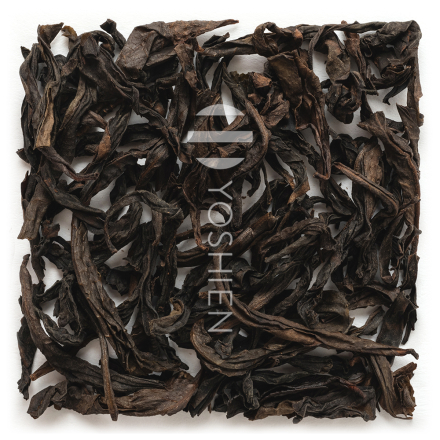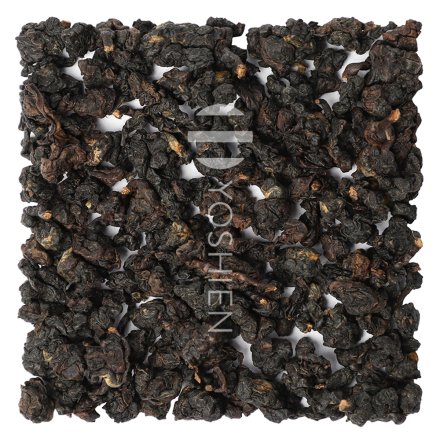The Wu Yi Shan Mountains in the northwest of Fujian Province traditionally rank among the most famous tea cultivation regions in China. This relatively large region, which is dominated by imposing rock massifs, densely growing forests and twisting rivers, is home to only 20,000 people. For centuries the mountains were a place of hermitage for taoist and buddhist monks, who began to settle in the region during the Song Dynasty (960–1279). From this period onward tea was cultivated on the cliffs and hills as well as in the gorges.
The unique natural landscape offers unusual conditions for growing tea, but the results are impressive. The karst topography offers excellent growing conditions for tea, as rainwater collects minerals from the cliffs and limestone gorges as it flows. The natural drainage and low surface water of the land was used by early monks and farmers to their advantage, resulting in very mineral rich soil. The tea plants growing in the valleys and slopes absorb these minerals to produce nutritious tea.
A further special factor in the cultivation of this tea is the history of the cultivars. In the case of Da Hong Pao, there are six 350-year-old tea bushes that are highly revered as the originators of the tea, but which have not been harvested since 2005. Among the hundreds of autochthonous cultivars that grow in the Wu Yi Mountains, a few are derived from cuttings of those original 6 tea bushes and the offspring of those cuttings. These cultivars are thus the basis for contemporary Da Hong Pao teas, which are always prepared as blends and not single-cultivar teas. The best known of these cultivars include Shui Xian (水仙), Rou Gui (肉桂), and Qi Dan (奇丹), which are each included in our Imperial Grade Da Hong Pao. These tea bushes grow relatively small leaves and intricate root networks that absorb many minerals and contribute to the taste of the tea. Since these cultivars do not have high yields, there is a relatively small amount of this tea made every year.
Single Origin
This tea is exclusively sourced from the above mentioned tea farm in Sandu Cun.
Sourced directly from the tea farmer.




